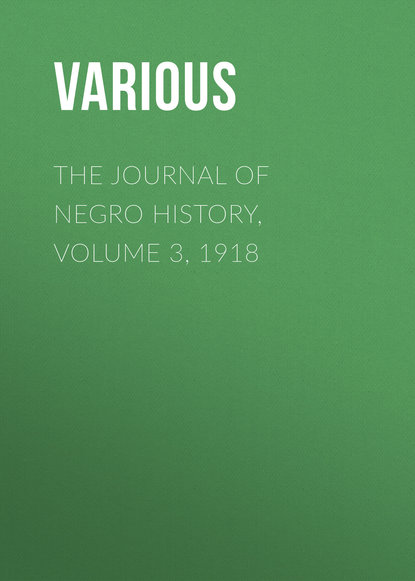По всем вопросам обращайтесь на: info@litportal.ru
(©) 2003-2024.
✖
The Journal of Negro History, Volume 3, 1918
Автор
Год написания книги
2019
Настройки чтения
Размер шрифта
Высота строк
Поля
Ibid., pp. 98-99.
441
Authorities consider the Amerindians the most fecund stock in the country, especially when mixed with an effusion of white or black blood. Agassiz, A Journey in Brazil in 1868.
442
Johnston, The Negro in the New World, p. 135.
443
Code Noir.
444
Brackett, The Negro in Maryland, pp. 32-33.
445
Benjamin Banneker's mother was a white woman who married one of her own slaves. See Tyson, Benjamin Banneker, p. 3.
446
Archives of Maryland, Proceedings of the General Assembly, 1637-1664, pp. 533-534.
447
Calhoun, A Social History of the American Family, p. 94.
448
Harris and McHenry Reports, I, pp. 374, 376; II, pp. 26, 38, 214, 233.
449
Hurd, Law of Freedom and Bondage, VI, pp. 249-250.
450
McCormac, White Servitude in Maryland, p. 70.
451
Act of Assembly, Oct., 1727.
452
Dorsey, The General Public Statutory Law and Public Local Law of State of Maryland, from 1692-1839, p. 79.
453
Bullagh, White Servitude in the Colony of Virginia, pp. 72, 73.
454
Hening, The Statutes at Large, I, pp. 146, 532. II, 170; III, pp. 86-88, 252.
455
Hening, Statutes at Large, VI, pp. 360-362.
456
Meade, Old Churches and Families of Virginia, I, p. 366.
457
Russell, Free Negro in Virginia, pp. 138-139.
458
Bassett, Slavery and Servitude in North Carolina, p. 83.
459
Ibid., pp. 58-59. See also Natural History of North Carolina, p. 48; and Hawk's History of North Carolina, II, pp. 126-127.
460
Potter, Revised Laws of North Carolina, I, p. 130.
461
Ibid., I, p. 157.
462
Massachusetts Charters, etc., p. 747; Hurd, Law of Freedom and Bondage, VI, p. 262.
463
Turner, The Negro in Pennsylvania, pp. 29-30.
464
Ibid., p. 30.
465
441
Authorities consider the Amerindians the most fecund stock in the country, especially when mixed with an effusion of white or black blood. Agassiz, A Journey in Brazil in 1868.
442
Johnston, The Negro in the New World, p. 135.
443
Code Noir.
444
Brackett, The Negro in Maryland, pp. 32-33.
445
Benjamin Banneker's mother was a white woman who married one of her own slaves. See Tyson, Benjamin Banneker, p. 3.
446
Archives of Maryland, Proceedings of the General Assembly, 1637-1664, pp. 533-534.
447
Calhoun, A Social History of the American Family, p. 94.
448
Harris and McHenry Reports, I, pp. 374, 376; II, pp. 26, 38, 214, 233.
449
Hurd, Law of Freedom and Bondage, VI, pp. 249-250.
450
McCormac, White Servitude in Maryland, p. 70.
451
Act of Assembly, Oct., 1727.
452
Dorsey, The General Public Statutory Law and Public Local Law of State of Maryland, from 1692-1839, p. 79.
453
Bullagh, White Servitude in the Colony of Virginia, pp. 72, 73.
454
Hening, The Statutes at Large, I, pp. 146, 532. II, 170; III, pp. 86-88, 252.
455
Hening, Statutes at Large, VI, pp. 360-362.
456
Meade, Old Churches and Families of Virginia, I, p. 366.
457
Russell, Free Negro in Virginia, pp. 138-139.
458
Bassett, Slavery and Servitude in North Carolina, p. 83.
459
Ibid., pp. 58-59. See also Natural History of North Carolina, p. 48; and Hawk's History of North Carolina, II, pp. 126-127.
460
Potter, Revised Laws of North Carolina, I, p. 130.
461
Ibid., I, p. 157.
462
Massachusetts Charters, etc., p. 747; Hurd, Law of Freedom and Bondage, VI, p. 262.
463
Turner, The Negro in Pennsylvania, pp. 29-30.
464
Ibid., p. 30.
465











